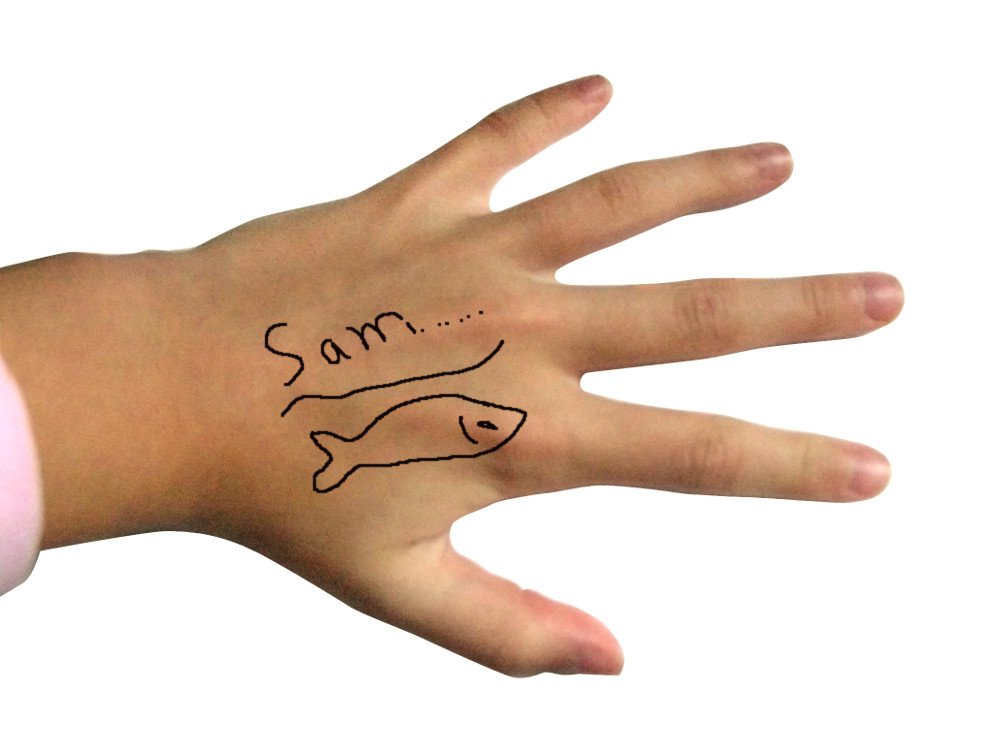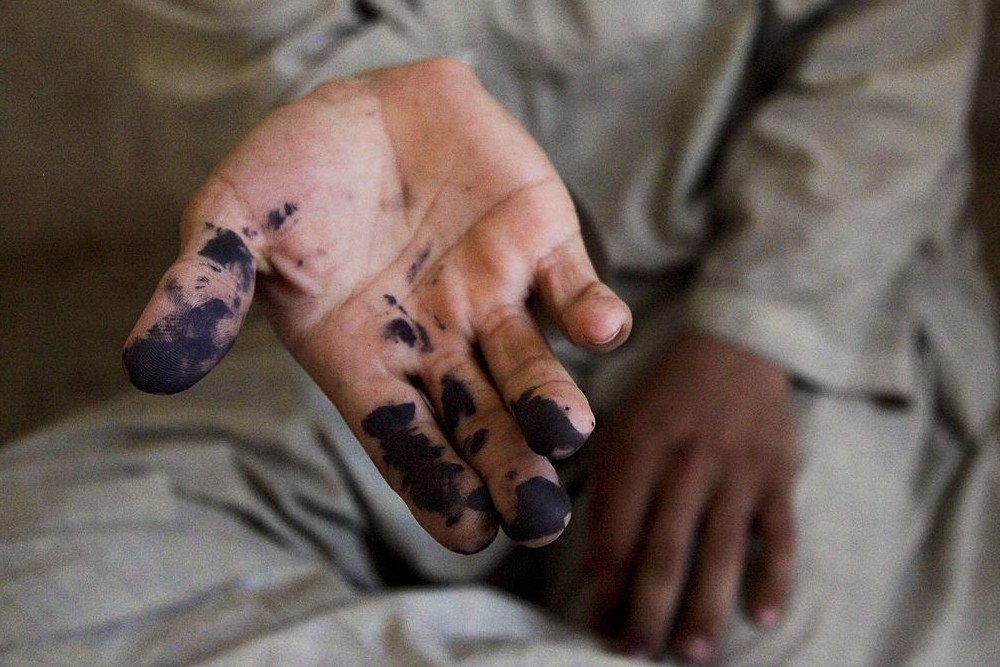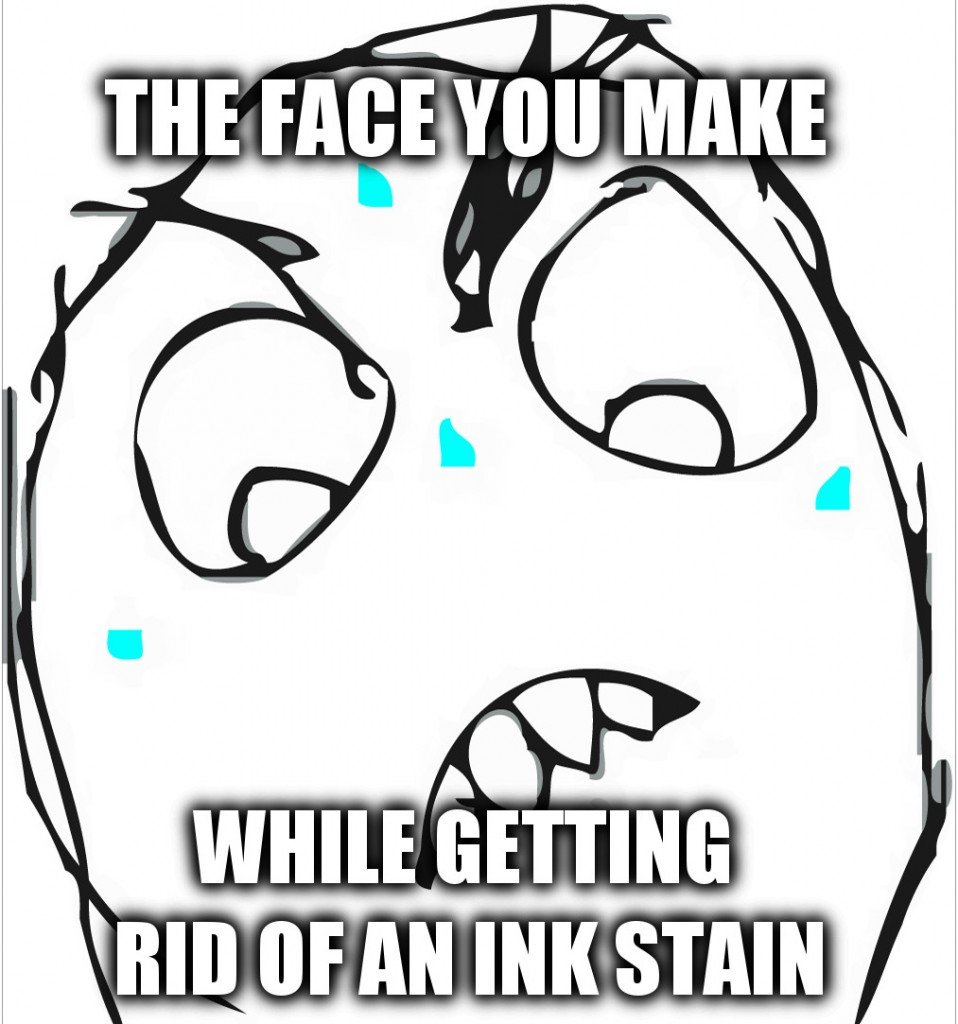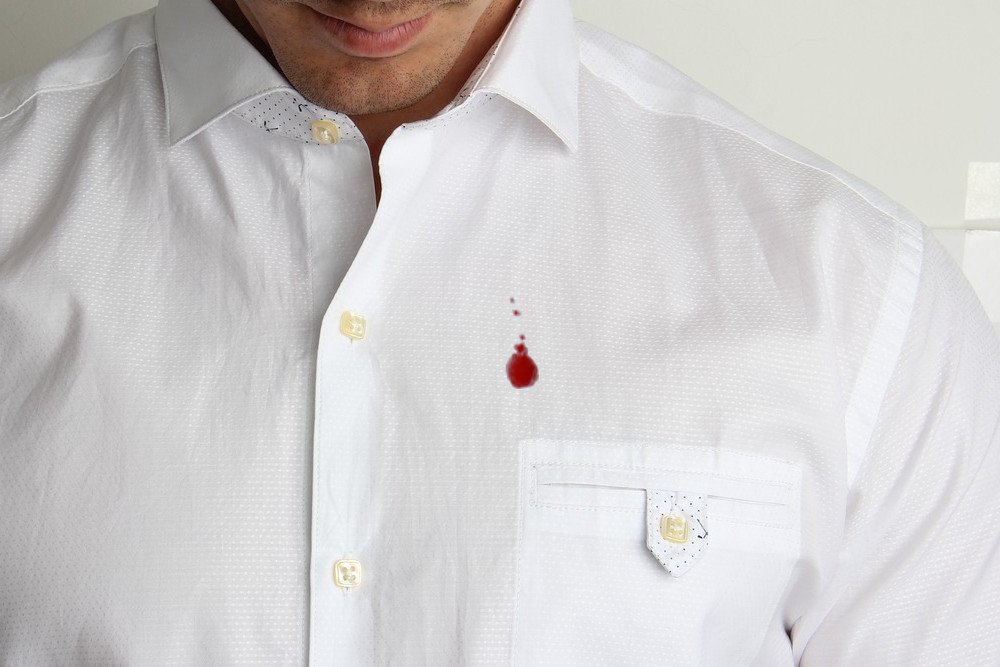Table of Contents (click to expand)
When ink dries on the skin, it also becomes very hard to remove. Blood cells are larger in size than ink particles, so they can’t penetrate the outer surface of the skin (as well as ink particles do) to begin with. Additionally, blood is mostly water, in contrast to ink, which contains a solvent like propyl alcohol.
Here’s a throwback to my childhood days – back when I was in 6th grade, I got in a fight with a classmate. He had an ink pen, which he deliberately swung a few inches away from me, leaving a blue streak of ink across my face and neck.
I was mighty angry, but we’re not here to discuss all that, we’re only interested in the fact that ink stains (like that one) stick pretty well to human skin. When I got home that day, I had to spend quite a bit of time in the bathroom scrubbing my face and neck like crazy to get that stain to disappear.

On the other hand, blood, which, if you think about it, is just another pigment, doesn’t stick to the human skin as ‘adamantly’ as ink. However, if blood dries on the skin, then it also becomes very hard to remove. Why is that?
Much of this can be explained by the structure of skin and fabric, and by understanding how ink or blood ‘particles’ interact with other objects.
Ink And Skin
When you draw on your skin using a permanent marker, ink travels from the tip of the marker to the skin by a solvent (like propyl alcohol). This solvent usually dissolves swiftly and penetrates more deeply into the keratinized layer of the skin. What this means is that while most of the ink stays on the surface, only a small amount can actually permeate through the surface and move inside the skin. In other words, ink can get under your skin… literally.

These ‘ink particles’ are much smaller in size than your red blood cells. That’s why the former can squeeze through the smaller ‘holes’ on your skin’s surface.
When you try and wash ink stains off your skin, they usually come off easily. If the ink is not water soluble, using soap can help to accelerate the ‘cleaning’. However, even when you use soapy water, there may still be a little ink left, which is very stubborn, that you can’t get completely rid of. That’s the small portion of the ink that got inside the top layer of your skin. So, when you really go to town while scrubbing your skin to remove that stain, you essentially scrub off some of the outer layer of your skin.

Blood stains, however, are a different story.
Also Read: Why Do Tattoos Last Forever If Skin Constantly Sheds?
Blood Stains
The composition of blood is quite different from that of ink, which accounts for the difference in how blood and ink interact with either skin or fabric.
Blood cells are larger in size than ink particles, so they can’t penetrate the outer surface of the skin (as well as ink particles do) to begin with. Additionally, blood is mostly water, in contrast to ink, which contains a solvent like propyl alcohol. Barring pores and hair on the skin, blood doesn’t really have much to grab onto. That’s why fresh blood stains don’t stick to the skin and come off easily (at least easier than ink stains).
However, blood stains do not come off easily from fabrics, because clothes have many holes, pores and crevices where blood can enter and be absorbed by the fabric itself. This makes the blood stain ‘stick’ to the fabric, making it difficult to remove quickly.

However, if the blood stain is dry, then the dynamics change.
If blood is left on (either on skin or cloth) long enough for it to dry, it will undergo a chemical reaction and adhere to the surface it’s on. That’s what blood is supposed to do – it is supposed to coagulate (clotting mechanism of blood) and ‘freeze’ in place (in order to prevent further blood loss in the case of an injury).
When blood dries, it hardens in place and sticks to the host surface like glue. This is what makes dried blood stains more difficult to scrub off, more so if you don’t use some sort of cleaning agent or chemical.
Here’s a fun fact about blood stains: most things are easier to clean or wash off if hot water is used, but blood stains are a different story. You would end up making the stain worse and more ‘persistent’ if you used hot water to erase a blood stain. Thus, it’s always recommended to use cold water to wash off blood stains and marks.
Also Read: Why Can Pencil Be Easily Erased Off A Paper, But Ink Can’t?
How well do you understand the article above!

